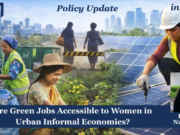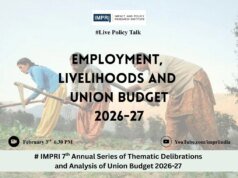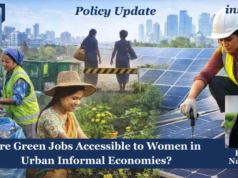Anil Trigunayat
On October 23, 2024, Prime Minister Narendra Modi and President Xi Jinping, on the sidelines of the BRICS Summit in Kazan, decided to bury the hatchet and work expeditiously and sincerely to resolve various bilateral issues, especially the breach of trust stemming from China’s unsuccessful incursion in Galwan in 2020. Since then, frequent interactions between India and China have been conducted at the level of foreign and defense ministers, Special Representatives (NSA), and through institutionalized arrangements like the Working Mechanism for Consultation and Coordination on India-China Border Affairs (WMCC). Incremental progress regarding de-escalation has been made along the borders, with gradual easing of restrictions envisaged.
China permitted and facilitated the Kailash Mansarovar Yatra for Indian pilgrims, while India agreed to ease visas for Chinese businesses and resume direct flights between the two countries.
The last major interaction before this summit was held between Chinese Foreign Minister and Politburo member Wang Yi (August 18–19) and Indian External Affairs Minister and National Security Adviser, co-chair of the Special Representatives Mechanism, less than two weeks prior to Prime Minister Modi’s visit to Tianjin for the 25th SCO Summit (August 30–September 1). Three working groups were established to deal with border issues and management, and additional cross-border points were agreed upon to expand trade.
While the Summit was the largest gathering with over twenty leaders and ten international organisations — providing Beijing an opportunity to showcase the efficacy and outreach of alternative non-Western institutional mechanisms — the bilateral dimension between India and China remained at the forefront. Apart from giving PM Modi a red-carpet welcome with an Indian touch, the first interaction between the two leaders happened almost immediately. President Xi described the relationship as a “vital partnership” in the 21st century.
Both sides agreed to proceed with developing trust and confidence-building measures and to address concrete issues such as trade imbalance, market access (especially NTBs), border management and resolution, river water management and data sharing, and maintaining overall peace and tranquillity.
They also discussed further de-escalation and disengagement, given that both sides still maintain at least 50,000 forces each in a face-to-face deployment. Both leaders exchanged views on potential cooperation to navigate an uncertain and unpredictable global situation, particularly in the context of the Global South. President Xi also criticised bullying behaviour and practices, obliquely referring to Trump-era tactics.
In his opening remarks, PM Modi reiterated: “Last year in Kazan, we had very productive discussions, which gave a positive direction to our relations. After the disengagement at the border, an atmosphere of peace and stability is now in place. Our Special Representatives have also reached an agreement on border management. Our cooperation is linked to the interests of 2.8 billion people in our two countries. This will also pave the way for the welfare of all humanity. We are committed to advancing our relations based on mutual trust, respect, and sensitivity.”
A picture-perfect moment occurred when PM Modi, President Putin, and President Xi were seen conversing jovially and intensely, creating what many observers termed the “RIC moment,” while Pakistani Prime Minister Shehbaz Sharif appeared alone in the backdrop.
This, however, does not diminish the reality that the Sino-Pak axis remains a significant challenge for India. The policy of competition coupled with cooperation, while avoiding conflict, will likely continue in India-China relations in the near future. The camaraderie between PM Modi and President Putin in Tianjin, including a private ride in Putin’s limousine to avoid eavesdropping — likely to discuss the Putin-Trump Alaska meet — was also on full display. PM Modi once again urged President Putin to work towards ending the Ukraine war, emphasising that humanity longs for its conclusion.
Modi-Xi Kazan Meet: Resetting India-China Ties Amid Tensions and Global Shifts Earlier, President Zelensky had also reached out to PM Modi on this issue. Despite Trump’s accusations against India, PM Modi has consistently played a constructive role as a facilitator, aiming to bring an end to this devastating Eurasian conflict. New Delhi could potentially serve as a neutral venue for negotiations between the warring parties.
The SCO Summit itself was a statement of intent, articulating a new vision of development strategies for the Global South and global governance with multipolarity and strengthened multilateral institutions. The SCO sought to expand its remit from security to include trade, investment, AI, technology, and people-to-people connectivity across the Eurasian landscape. Several new mechanisms were announced, and the proposed establishment of an SCO Bank and related financial architecture gains significance as US unilateralism, particularly regarding tariffs and sanctions, continues.
In his intervention, PM Modi redefined the contours of SCO: S stands for Security, with zero tolerance for terrorism without double standards; C stands for Connectivity, respecting sovereignty while subtly critiquing BRI and fostering the International North–South Transport Corridor (INSTC); and O stands for Opportunities for all, proposing a new Civilisational Dialogue Forum to showcase the richness of ancient civilisations, art, literature, and traditions on a global stage. India, during its 2023 SCO Presidency, had already promoted start-ups and innovation, traditional medicine, youth empowerment, digital inclusion, and shared Buddhist heritage, adopting a “beyond government” approach.
Countering terrorism remains one of SCO’s top priorities. In the presence of Pakistani Prime Minister Shehbaz Sharif, whose complicity in cross-border terrorism against India is well documented, PM Modi directly called out Pakistan:
“For the past four decades, India has borne the grave scars of ruthless terrorism. Countless mothers have lost their children, and innumerable children have been left orphaned. Recently, we witnessed the most heinous face of terrorism in Pahalgam. I express my deep gratitude to all friendly nations that stood by us during this moment of grief. This attack was not only an assault on the conscience of India but also an open challenge to every nation and every individual who believes in humanity. In such circumstances, it is natural to ask: Can the open support for terrorism by certain countries ever be acceptable to us?”
Indeed, Rawalpindi has been emboldened by global complicity and double standards. It is imperative to expose such hypocrisy, as with prevailing myopic geopolitical interests, the fight against terrorism risks being undermined. India, however, must remain vigilant and respond decisively to safeguard its people and security.For now, India–China relations appear to be on a positive trajectory, but the proof of the pudding is in the eating. Both sides must make a realistic assessment of the benefits of cooperation over conflict, especially as global disorder persists and unilateral, hegemonistic approaches remain the preferred strategy of major powers.
Earlier, President Zelensky had also reached out to PM Modi on this issue. Despite Trump’s accusations against India, PM Modi has consistently played a constructive role as a facilitator, aiming to bring an end to this devastating Eurasian conflict. New Delhi could potentially serve as a neutral venue for negotiations between the warring parties.
The SCO Summit itself was a statement of intent, articulating a new vision of development strategies for the Global South and global governance with multipolarity and strengthened multilateral institutions. SCO sought to expand its remit from security to include trade, investment, AI, technology, and people-to-people connectivity across the Eurasian landscape. Several new mechanisms were announced, and the proposed establishment of an SCO Bank and related financial architecture gains significance as US unilateralism, particularly regarding tariffs and sanctions, continues.
In his intervention, PM Modi redefined the contours of SCO: S stands for Security, with zero tolerance for terrorism without double standards; C stands for Connectivity, respecting sovereignty while subtly critiquing BRI and fostering the International North-South Transport Corridor (INSTC); and O stands for Opportunities for all, proposing a new Civilisational Dialogue Forum to showcase the richness of ancient civilizations, art, literature, and traditions on a global stage. India, during its 2023 SCO Presidency, had already promoted start-ups and innovation, traditional medicine, youth empowerment, digital inclusion, and shared Buddhist heritage, adopting a “beyond government” approach.
Countering terrorism remains one of SCO’s top priorities. In the presence of Pakistani Prime Minister Shehbaz Sharif, whose complicity in cross-border terrorism against India is well-documented, PM Modi directly called out Pakistan:
“For the past four decades, India has borne the grave scars of ruthless terrorism. Countless mothers have lost their children, and innumerable children have been left orphaned. Recently, we witnessed the most heinous face of terrorism in Pahalgam. I express my deep gratitude to all friendly nations that stood by us during this moment of grief. This attack was not only an assault on the conscience of India but also an open challenge to every nation and every individual who believes in humanity. In such circumstances, it is natural to ask: Can the open support for terrorism by certain countries ever be acceptable to us?”
Indeed, Rawalpindi has been emboldened by global complicity and double standards. It is imperative to expose such hypocrisy, as with prevailing myopic geopolitical interests, the fight against terrorism risks being undermined. India, however, must remain vigilant and respond decisively to safeguard its people and security.
For now, India-China relations appear to be on a positive trajectory, but the proof of the pudding is in the eating. Both sides must make a realistic assessment of the benefits of cooperation over conflict, especially as global disorder persists and unilateral, hegemonistic approaches remain the preferred strategy of major powers.
Anil Trigunayat is a Former Ambassador and Distinguished Fellow, Vivekananda International Foundation
The article was first published in The Pioneer as Modi-Xi Kazan Meet: Resetting India-China Ties Amid Tensions and Global Shifts on 7th September 2025
Disclaimer: All views expressed in the article belong solely to the author and not necessarily to the organisation.
Read more at IMPRI:
Democratic and Inclusive Universities: A Sign of ProgressIndia-Egypt: Nile-Ganga Cultural Exchange
Strengthening Social Security: Pradhan Mantri Jeevan Jyoti Bima Yojana (PMJJBY), 2015
Acknowledgment: This article was posted by Devyani Choudhary, a Research Inter at IMPRI.



















